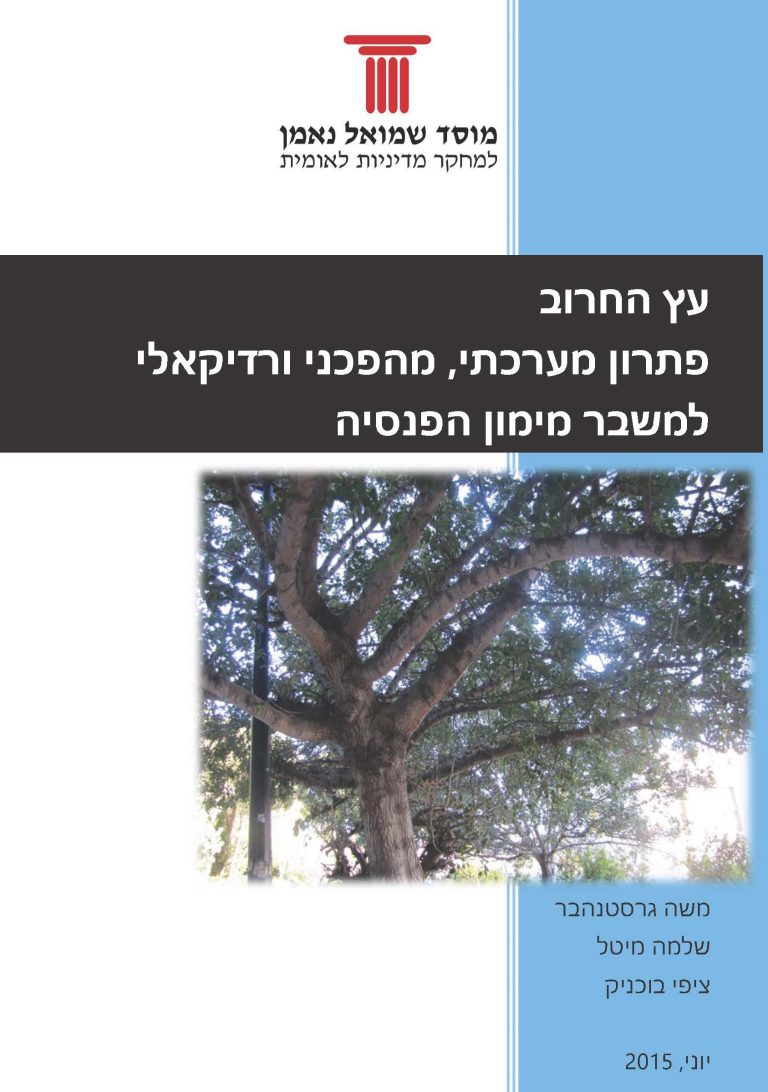The Challenge
Israel’s elderly poverty problem is among the worst in OECD nations. One in every five persons 65 and over (totaling 185,000 persons) is poor. Many are Holocaust survivors. For them time is rapidly running out, as 1,000 of them die each month. The National Insurance Institute’s reserve fund, managed by the Bank of Israel, will begin declining in a decade and will be depleted by 2042. Longer life expectancy, low returns on pension assets, high investment risks and fiscal constraints, combine to endanger future pensions for those now retired and those still working. By 2040 or earlier, low and inadequate state-provided pensions will be available only at age 75 and will likely be available only to age 90. Pensioners will need their own pension assets for another decade or more; many or most will lack them. As the working population shrinks, relatively, and the population over 65 (and especially over 90) grows rapidly, intergenerational strife between those who have to support the elderly out of wages and those who need that support will be inevitable, with disastrous consequences for the individuals concerned and social cohesion.
The Proposed Solution
Our proposed radical, systemic solution is based on a simple formula: Future pension assets = S x R x T, (savings times rate of return) times time. Higher domestic saving now, times higher returns, for 70 years, can offer a solution. The power of compound interest is the key. There is no other option. There is no time to lose.
Global economic growth is facing chronic long-term decline. Israel, an export-driven economy, must spur its own growth, to target 5% annual GDP growth instead of the current 3%. This, in turn, will require accelerated productivity growth, driven by higher domestic saving and capital formation. We propose a four-part solution (the Four Pillars): (1) Special Levy, equal to 0.5 per cent yearly of GDP, funding a (2) Grant-at-Birth for every child, invested at 5% net for 70 years, by (3) Super Trust funds, a new one established every three years, that invest in Israeli infrastructure and businesses (while today over 40 percent of pension funds are invested abroad, offering no benefit to Israeli industry and economy in general). In addition, (4) a Maxi-Life program, including website, will help concerned citizens track their pension assets, manage their savings and better understand and prepare for their future needs, especially the process of work skills updating and upgrading.
The Future
With 5 per cent annual GDP growth, enabled by our Four Pillars, driven by higher domestic saving and capital formation, the pension crisis can be resolved without intergenerational friction. With 3 per cent growth, there is no solution, other than painful and unfair resource transfers from young to old, or relegation of pensioners to abject poverty. Democracies are chronically inept at dealing with long-term challenges. On this issue, Israel must prove an exception.












